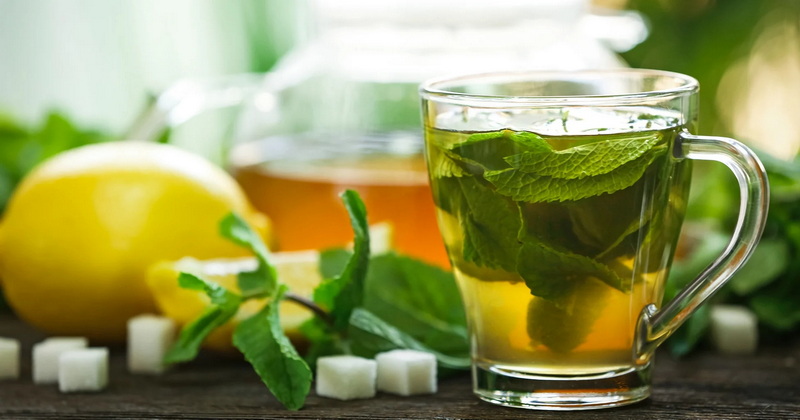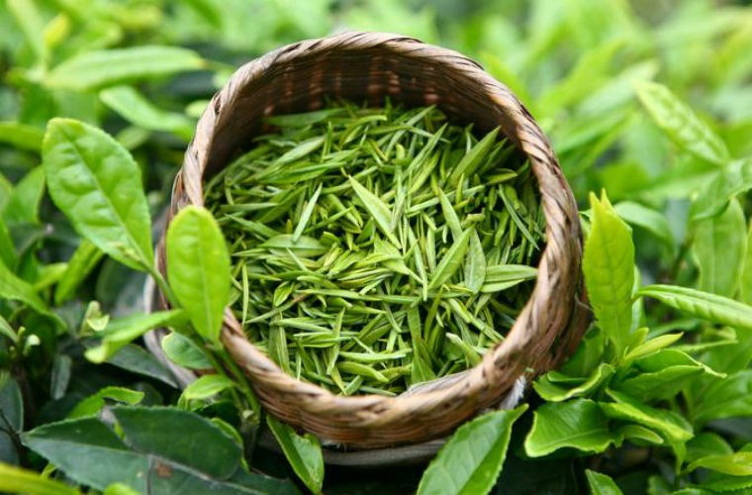Content Menu
● The Composition of Green Tea Leaf Extract
● Stimulant Properties of Green Tea Leaf Extract
>> Caffeine Content and Its Effects
>> Synergistic Effects with L-Theanine
● Impact on Energy Metabolism and Weight Management
>> Thermogenesis and Fat Oxidation
>> Impact on Body Composition
● Cognitive Effects and Neuroprotection
>> Cognitive Performance
>> Neuroprotective Potential
● Cardiovascular Effects
>> Blood Pressure and Heart Rate
>> Endothelial Function
● Exercise Performance and Recovery
>> Enhanced Endurance and Performance
>> Recovery and Muscle Soreness
● Potential Side Effects and Precautions
>> Common Side Effects
>> Liver Concerns
● Conclusion
● FAQ
>> 1. How much caffeine is in green tea leaf extract compared to coffee?
>> 2. Can green tea leaf extract help with weight loss?
>> 3. Are there any interactions between green tea leaf extract and medications?
>> 4. How long do the stimulant effects of green tea leaf extract last?
>> 5. Is it safe to consume green tea leaf extract daily?
● Citations:
Green tea leaf extract has gained significant attention in recent years due to its potential health benefits and stimulant properties. This article will explore the stimulant effects of green tea leaf extract, its composition, and its various impacts on the human body.

The Composition of Green Tea Leaf Extract
Green tea leaf extract is derived from the leaves of Camellia sinensis, the same plant used to produce various types of tea. The extract contains a complex mixture of bioactive compounds, with catechins being the most abundant and well-studied[1]. The primary catechins in green tea extract include:
- Epigallocatechin gallate (EGCG)
- Epigallocatechin (EGC)
- Epicatechin gallate (ECG)
- Epicatechin (EC)
Among these, EGCG is the most abundant and is believed to be responsible for many of the health benefits associated with green tea extract[3].
Stimulant Properties of Green Tea Leaf Extract
Green tea leaf extract does indeed possess stimulant properties, primarily due to its caffeine content[1]. While the caffeine content in green tea extract is generally lower than that found in coffee, it still contributes to the extract's stimulant effects.
Caffeine Content and Its Effects
The caffeine content in green tea extract can vary depending on the preparation method and the specific part of the plant used. On average, green tea extract contains about 25-35 mg of caffeine per gram[4].
Caffeine is a well-known stimulant that affects the central nervous system. It works by blocking adenosine receptors in the brain, which leads to increased alertness and reduced fatigue[1]. The stimulant effects of caffeine in green tea extract include:
1. Increased alertness and concentration
2. Improved mood and cognitive function
3. Enhanced physical performance
4. Increased metabolic rate
Synergistic Effects with L-Theanine
Interestingly, green tea leaf extract also contains L-theanine, an amino acid that can have a calming effect on the mind. The combination of caffeine and L-theanine in green tea extract creates a unique synergistic effect[1]. This combination provides a more balanced and sustained form of stimulation compared to caffeine alone, often described as a state of "calm alertness."
Impact on Energy Metabolism and Weight Management
Green tea leaf extract's stimulant properties extend beyond its direct effects on the central nervous system. Research has shown that it can also influence energy metabolism and potentially aid in weight management[2].
Thermogenesis and Fat Oxidation
Studies have demonstrated that green tea extract can increase thermogenesis (heat production) and fat oxidation in the body[4]. This effect is attributed to both the caffeine content and the catechins, particularly EGCG. The combination of these compounds appears to stimulate the sympathetic nervous system, leading to increased energy expenditure and fat breakdown.
Impact on Body Composition
Several studies have investigated the effects of green tea extract on body composition. A meta-analysis of randomized controlled trials found that green tea extract supplementation was associated with small but significant reductions in body weight and body fat percentage[2]. However, it's important to note that these effects were modest, and green tea extract should not be considered a magic solution for weight loss.

Cognitive Effects and Neuroprotection
The stimulant properties of green tea leaf extract may also contribute to its potential cognitive benefits and neuroprotective effects.
Cognitive Performance
Research has shown that the combination of caffeine and L-theanine in green tea extract can improve various aspects of cognitive performance, including:
- Attention and focus
- Working memory
- Reaction time
- Task switching ability
These effects are likely due to the synergistic action of caffeine and L-theanine on brain function[3].
Neuroprotective Potential
Beyond its acute cognitive effects, green tea extract has shown promise in protecting against age-related cognitive decline and neurodegenerative diseases. The antioxidant and anti-inflammatory properties of green tea catechins, particularly EGCG, may help protect brain cells from oxidative stress and inflammation, which are implicated in the development of conditions like Alzheimer's disease[3].
Cardiovascular Effects
The stimulant properties of green tea leaf extract can also influence cardiovascular function, although the effects are generally considered mild and safe for most people.
Blood Pressure and Heart Rate
Caffeine in green tea extract can cause a temporary increase in blood pressure and heart rate. However, these effects are typically short-lived and not significant in most healthy individuals[7]. Interestingly, long-term consumption of green tea has been associated with a reduced risk of hypertension in some population studies.
Endothelial Function
Green tea extract may also have beneficial effects on endothelial function, which is crucial for cardiovascular health. Studies have shown that green tea catechins can improve flow-mediated dilation, a measure of endothelial function, potentially due to their antioxidant properties[3].
Exercise Performance and Recovery
The stimulant effects of green tea leaf extract have made it a popular supplement among athletes and fitness enthusiasts.
Enhanced Endurance and Performance
Some studies have reported improved endurance and exercise performance with green tea extract supplementation. These effects are likely due to a combination of factors, including increased fat oxidation, improved glucose metabolism, and the stimulant effects of caffeine[4].
Recovery and Muscle Soreness
Green tea extract may also aid in exercise recovery. Its anti-inflammatory and antioxidant properties could help reduce exercise-induced muscle damage and soreness, although more research is needed to fully understand these effects[4].
Potential Side Effects and Precautions
While green tea leaf extract is generally considered safe for most people, its stimulant properties can lead to side effects in some individuals, especially when consumed in large amounts.
Common Side Effects
Potential side effects of green tea extract, particularly when consumed in high doses, may include:
- Insomnia or sleep disturbances
- Anxiety and restlessness
- Increased heart rate
- Digestive issues
- Headaches
Liver Concerns
In rare cases, high doses of green tea extract have been associated with liver problems. While these cases are infrequent, it's important to use green tea extract supplements as directed and consult with a healthcare provider before starting any new supplement regimen[7].
Conclusion
Green tea leaf extract does indeed possess stimulant properties, primarily due to its caffeine content. However, its effects are more nuanced than those of caffeine alone, thanks to the presence of L-theanine and various catechins. The extract's stimulant effects contribute to its potential benefits for cognitive function, metabolism, cardiovascular health, and exercise performance.
While green tea leaf extract is generally safe for most people, it's important to use it responsibly and be aware of potential side effects, especially when consuming high doses. As with any supplement, it's advisable to consult with a healthcare professional before incorporating green tea leaf extract into your routine, particularly if you have any pre-existing health conditions or are taking medications.

FAQ
1. How much caffeine is in green tea leaf extract compared to coffee?
Green tea leaf extract typically contains less caffeine than coffee. On average, green tea extract contains about 25-35 mg of caffeine per gram, while a standard cup of coffee can contain 95-200 mg of caffeine. However, the exact amount can vary depending on the specific extract and preparation method.
2. Can green tea leaf extract help with weight loss?
Green tea leaf extract may contribute to weight loss efforts due to its effects on metabolism and fat oxidation. However, the effects are generally modest, and green tea extract should not be considered a substitute for a healthy diet and regular exercise.
3. Are there any interactions between green tea leaf extract and medications?
Green tea leaf extract can interact with certain medications, including blood thinners, stimulants, and some antibiotics. It's important to consult with a healthcare provider before using green tea extract supplements if you're taking any medications.
4. How long do the stimulant effects of green tea leaf extract last?
The stimulant effects of green tea leaf extract can last for several hours, depending on the dose and individual factors. The caffeine in green tea extract typically has a half-life of about 5 hours in healthy adults.
5. Is it safe to consume green tea leaf extract daily?
For most healthy adults, moderate daily consumption of green tea leaf extract is considered safe. However, it's important to follow recommended dosages and be aware of potential side effects. If you're considering daily supplementation, it's best to consult with a healthcare provider first.
Citations:
[1] https://pmc.ncbi.nlm.nih.gov/articles/PMC9967785/
[2] https://pubmed.ncbi.nlm.nih.gov/38031409/
[3] https://pmc.ncbi.nlm.nih.gov/articles/PMC2855614/
[4] https://pubmed.ncbi.nlm.nih.gov/10584049/
[5] https://pmc.ncbi.nlm.nih.gov/articles/PMC6412948/
[6] https://onlinelibrary.wiley.com/doi/10.1155/2021/7170736
[7] https://www.mountsinai.org/health-library/herb/green-tea
[8] https://www.healthline.com/nutrition/top-10-evidence-based-health-benefits-of-green-tea
[9] https://www.healthline.com/nutrition/10-benefits-of-green-tea-extract






























